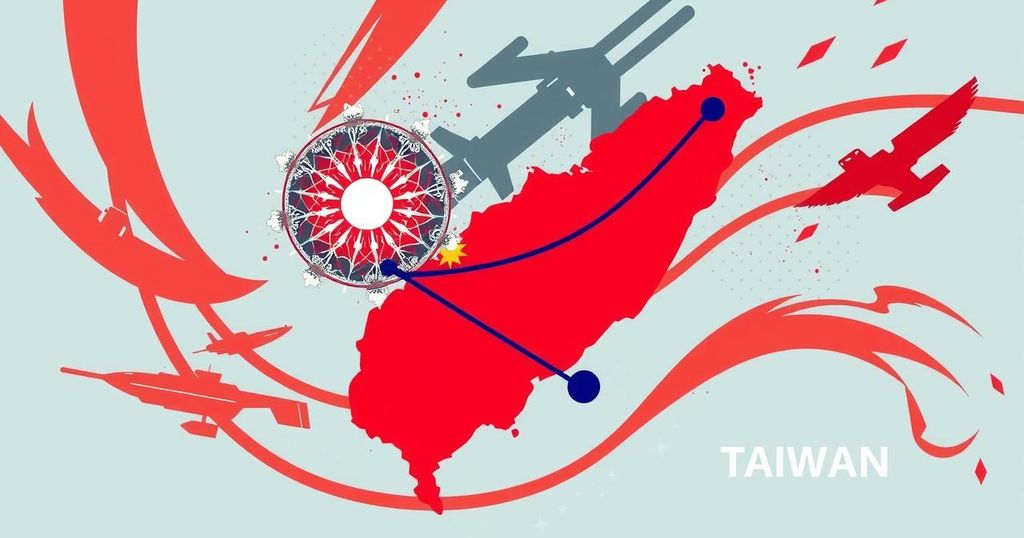Taiwan Deports Chinese Influencer for Endorsing Beijing’s Military Goals
Taiwan has deported Chinese influencer Liu Zhenya for supporting Beijing’s plans to conquer Taiwan, reflecting the government’s tough stance against pro-China sentiments. Despite her assertions of innocence, Liu’s actions were deemed a threat to national stability amidst rising tensions between Taiwan and China. This incident underscores Taiwan’s commitment to resisting Chinese influence and enhancing its defenses.
Taiwan has recently deported a Chinese woman, Liu Zhenya, who had expressed support online for Beijing’s military strategies aimed at seizing control of the self-governing island. China regards Taiwan as a rebellious province, having separated during the civil war in 1949, and has significantly bolstered its naval and missile capabilities to assert this viewpoint.
Liu, an influencer known as “Yaya in Taiwan,” faced charges for allegedly threatening Taiwan’s national or social stability, as noted by the Interior Ministry. During a press conference just before her departure, Liu defended her actions, stating that her decision to leave was prompted by her attorneys’ advice and respect for Taiwanese law, asserting, “It’s not because I did anything wrong.”
This action reflects Taiwan’s pro-independence government’s tougher stance against those with Taiwanese residency who support China’s ambitions. President William Lai Ching-te has expressed concerns about China’s use of spies and propaganda through social media influencers, particularly aimed at subverting Taiwan’s democratic structure.
On the day of her deportation, Liu attempted to communicate with an immigration officer and faced protests from around 50 individuals who called for her to return to China. While Taiwanese authorities maintained order, such demonstrations signify the island’s widespread rejection of Beijing’s demands and its preference for maintaining de facto independence.
Liu, who is married to a Taiwanese citizen and has three children, boarded the flight to China alone. Under current regulations, she will be barred from reapplying for Taiwan residency for five years. Additionally, other Chinese women married to Taiwanese citizens are also being investigated amidst growing concerns about espionage within the military.
Amidst these tensions, Taiwan continues to enhance its defense systems with advanced weaponry from the United States as well as domestically produced military technology. Any conflict arising from these tensions could potentially involve U.S. military support due to legal obligations to respond to Chinese aggression against Taiwan. The geographical divide, the Taiwan Strait, stretches 180 kilometers (110 miles) between the two entities, underscoring the complexity of these geopolitical dynamics.
In summary, Taiwan’s deportation of Liu Zhenya serves as a clear indication of the government’s firm stance against individuals endorsing Chinese military ambitions. The ongoing tensions between Taiwan and China are reflected in heightened security measures, public dissent, and governmental scrutiny of foreign nationals residing in Taiwan. This situation highlights the broader implications for regional stability and military readiness as Taiwan reinforces its defensive capabilities against potential aggressions.
Original Source: abcnews.go.com








Post Comment